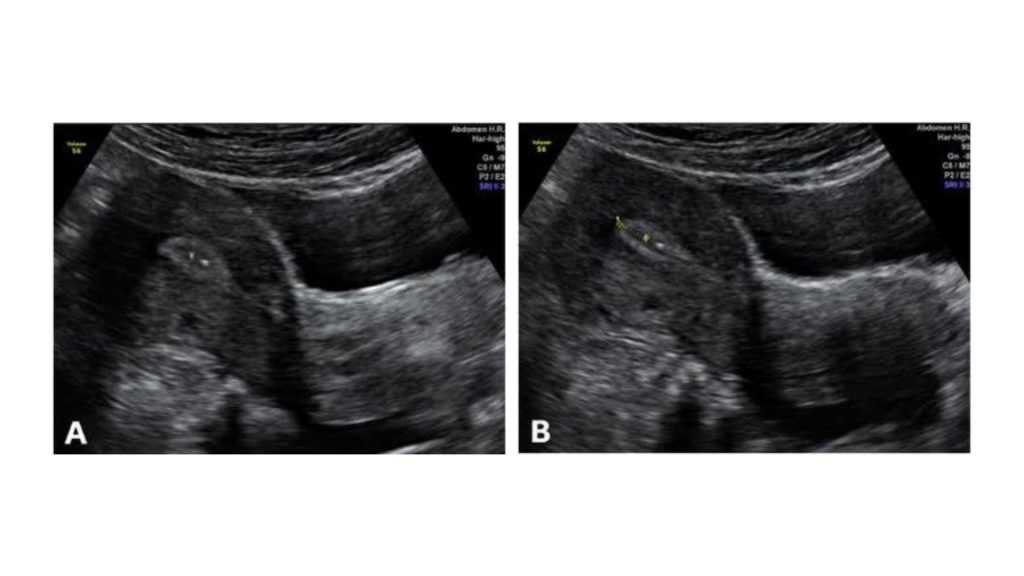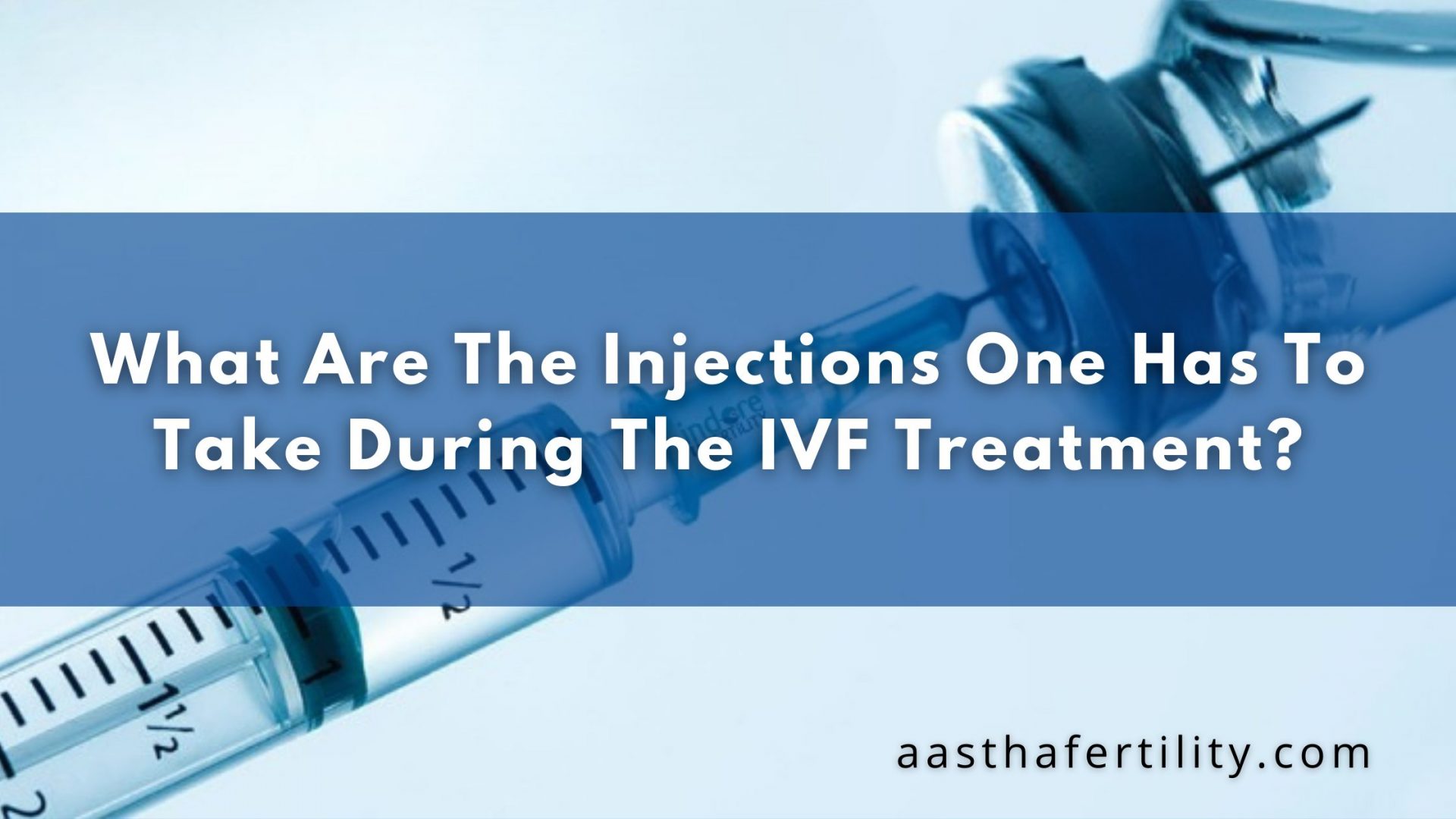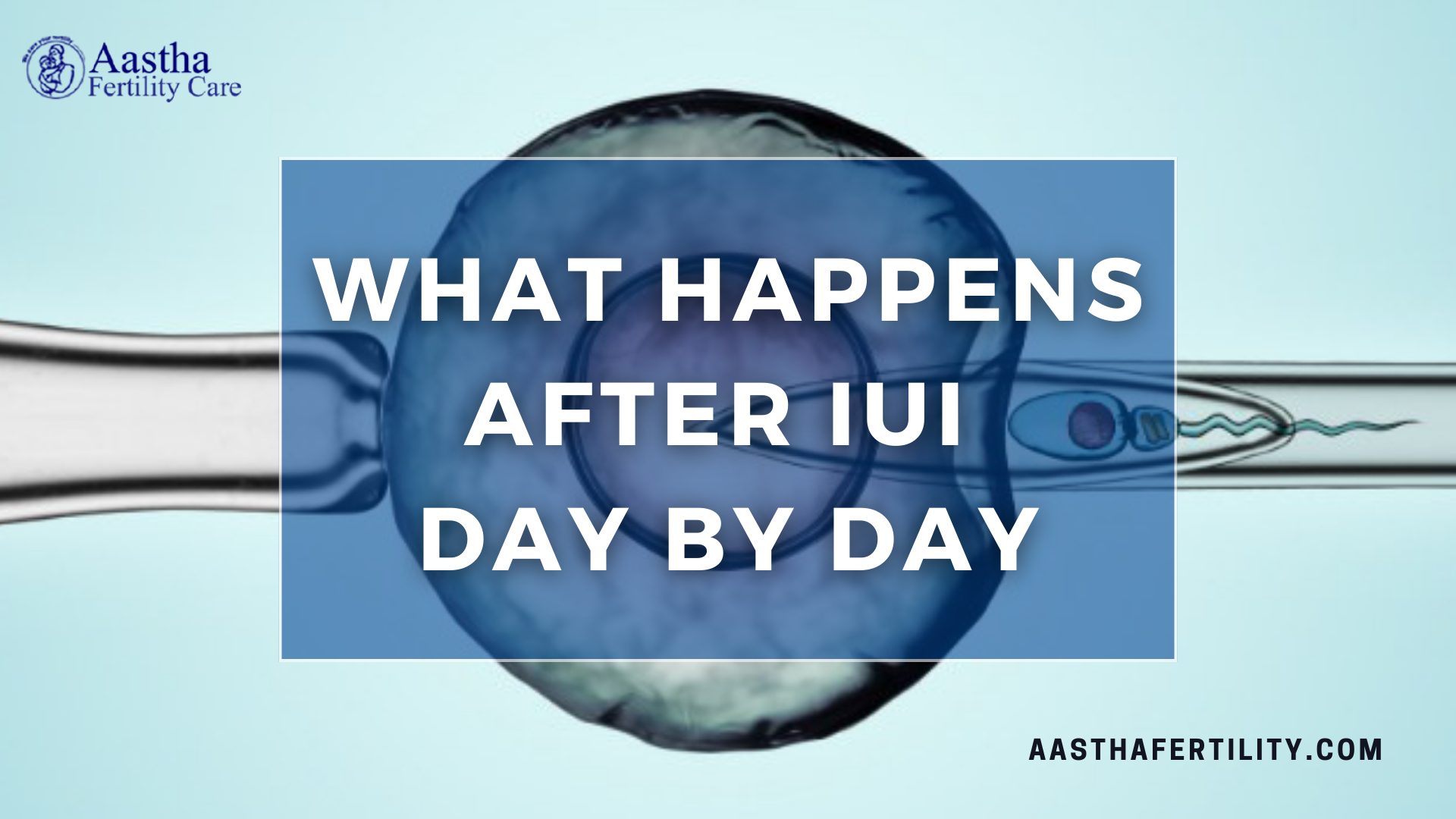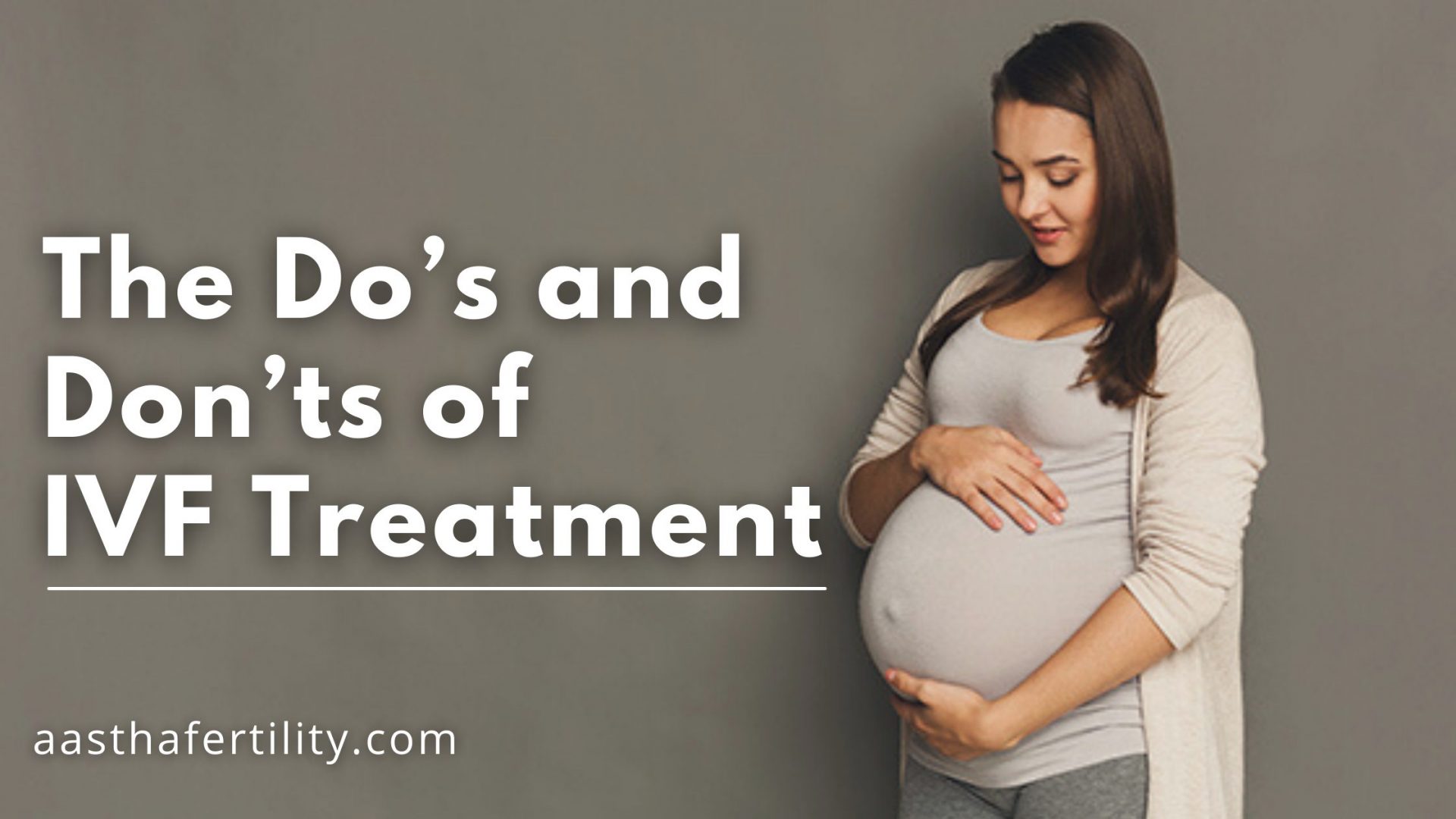Table of Contents
ToggleAfter months of prepping your body for In Vitro Fertilization (IVF), you must have followed all the instructions given to you by your physician. Now that your embryo transplant is done, the wait is killing you, and you are wondering what to do after the embryo transfer to increase success.
To a large extent, the actions you take after the embryo transfer do not directly affect the success of the IVF procedure. However, taking a few precautions for your well-being and the embryo is still important.
Aastha Fertility is a medical company that provides healthcare services and ante-natal and postnatal care to pregnant women and couples dealing with infertility in India.
Continue reading this article for a comprehensive guide on your expected post-IVF steps proposed by IVF Specialist– Dr. Namita Kotia.
Beginning Your Pregnancy Journey
Day 1
What happens to your body immediately after the embryo implantation is hatching?
Embryo cells keep dividing into multiple cells and form a cluster of about 100 cells. This cluster is called the blastocyst. Depending on your doctor, embryos are allowed to start this division outside the body to ensure fertility. As soon as the embryo is in your body, it starts to come outside its shell, which is hatching.
How Do I Know The Embryo Transfer Is Positive?
The waiting window from the embryo transfer until Human Chorionic Gonadotropin (HCG) begins to act always seems unending. HCG are the hormones released when the blastocyst has attached itself to the uterus walls. This indicates that implantation, which usually takes about 10-14 days, has occurred. Hence, you cannot determine success on the first day. Here are a few pointers that can indicate a positive embryo transfer.
A Good Sense of Wellness
There will be no obvious body changes on the first day. Your doctor would most likely recommend a day of rest. So, you can do well to take all the rest you can afford.
Other precautionary acts for this day and the embryo fertilisation period include:
- Avoid alcohol and smoking; this is neither good for you nor the baby.
- Eat a balanced diet and exercise.
- Get at least 8 hours of sleep.
- Try not to lift heavy things for the first couple of days.
Precaution
Please reach out to your doctor if you have any symptoms, including abdominal pain, bloating, nausea, vomiting, and diarrhea.
Day 2
Let’s get into this day quickly, For day 2, what happens to your body is this; the blastocyst begins to grow, but most importantly, the blastocyst starts to attach itself to the uterine lining. This is the first step to pregnancy because the successful attachment of the blastocyst means successful implantation. However, even on this day, there might not be physical indications of a positive embryo transplant like the first.
Regardless, you might want to keep a few things in mind from this day onward. Here they are:
Keep The Pregnancy Test Kits Away
You might be tempted to whip up your Prothrombin Time (PT) strip and check if you are pregnant; we strongly advise against this as this would increase your anxiety and stress levels; we don’t want that.
Keep Taking Your Medications
You must fully follow all the advice you receive from your medical doctor and use the drugs prescribed. You have likely been on progesterone pills before your implant day; stay on these medications as what it does for you is help balance your progesterone levels. It boosts the formation of the embryo, as frozen embryo transfer (FET) cycles do not enable your body to make any progesterone.
Be Careful With The Daily Products You Use
Stay away from products that have chemicals like bisphenol, parabens, and phthalates; they are known as endocrine-disrupting chemicals or EDCs. These chemicals can interfere with the way your body’s hormones are supposed to work.
Precautions
If you feel chronic pelvic pain, bowel obstruction, abdominal pain, bloating, nausea, vomiting, or diarrhea on this day. Please make sure to call a doctor.
Day 3

After day 3, embryo transfer, day-by-day symptoms tend to be more noticeable; on this day, the blastocyst invades the uterine lining, and implantation commences. You might start to notice a few changes in your body, which will be listed below. However, It is important to emphasise that no symptoms are not always an indicator of how successful a Fresh or frozen embryo implant has gone. Here are a few symptoms that may indicate a positive embryo transplant.
Light Bleeding And Spotting
The presence of blood may freak some people out, but it shouldn’t, and here is why. Light spotting in the early days of an embryo implant usually suggests that implantation has occurred, which means the embryo has attached itself to the lining of your uterus.
Spotting is also common when taking hormonal drugs such as progesterone during the first two weeks after embryo implant. So while spotting may occur, it is not necessarily an indicator of a successful transplant. Nevertheless, it is not something to fret over.
Vaginal Discharge
An increased vaginal discharge in the form of a thin, white, mild-smelling discharge could be a sign of pregnancy in the early weeks of conception, it could also probably be due to the use of your progesterone drugs.
What are possible body changes after Day 3?
Because your body is undergoing a lot of adapting, there might be a very high increase in hormones, and you might feel various emotions from anxiety to fatigue; being aware of these changes in your body would enable you to deal with them better.
Precautions
Please call a doctor if you feel chronic pelvic pain, bowel obstruction, abdominal pain, bloating, nausea, vomiting, or diarrhea on this day.
Day 4

By the fourth day, what would happen is this, the blastocyst would continue to dig deeper into the uterus; here are a few body symptoms to watch out for that may indicate your transplant was positive.
Bleeding And Spotting
On this day, bleeding and spotting may continue; this happens because the embryo would occupy the endometrial blood vessels to nurture itself from the maternal blood supply.
Cramping
You might also experience cramping, which could be a good sign that your embryo implant is doing alright.
Precautions
If on this day you feel chronic pelvic pain, bowel obstruction, abdominal pain, abdominal bloating, nausea, vomiting, or diarrhea, please make sure to call a doctor.
Day 5

By the fifth day, the 5-day blastocyst implantation timeline IVF is now considered complete, and your embryo is actively developing. Positive signs to look out for on this day could range from major pregnancy indicators like tiredness and fatigue, sore breast, and so on, excluding some symptoms like nausea.
Symptoms like nausea usually start to occur in the second month of pregnancy. They are not a great indicator of good health, so for precautionary sake, If on this day you feel chronic pelvic pain, bowel obstruction, abdominal pain, abdominal pain bloating, nausea, vomiting, or diarrhea, please consult a doctor.
Day 6

On the 6th day, the embryo’s growth triggers the release of human chorionic gonadotropin (HCG) into the bloodstream this hormone increases progesterone levels in the first trimester and functions to improve the uterus lining and also strengthen the growing embryo. The quantities of HCG would not yet be detectable in your blood, so you can still wait a little while longer before you start to take the pregnancy tests.
On the 6th day, you may have better indicators in your body showing signs that you can look out for the chance of a successful embryo transplant; you would most likely continue to feel the previous day’s symptoms sufficiently since the HCG hormone has been released in your body, you might also experience some of the following:
Bloating
Since HCG increases progesterone levels in your body, it can slow down your digestive tracts causing you to feel more bloated than usual.
Increased Need To Pee
This is also tied to the increase in HCG Hormones in your body, you might have to visit the toilet more frequently to urinate during this period, but that’s a good thing.
Precaution
Unfortunately, this symptom could also mean a UTI. If this symptom is accompanied by the following signs painful urination, the urgency to pee, bleeding, fever, nausea, and vomiting; please call a doctor.
Day 7

You have made it this far, and that is such exciting news. On Day 7, fetal development is stable as the embryo continues to grow. More HCG is released into the bloodstream. Similarly, the symptoms seven days after embryo transfer would be similar to day 6, with little to no physical changes.
Precaution
If you notice you start to put on a lot of weight, make sure to see a doctor.
Day 8

On day 8, the fertilisation process continues, and more HCG is released into the blood as the placenta begins to function. You would experience the same symptoms as you did on Day 7. Little to no physical changes would occur in your body. If your period occurs consistently every month at a certain period and is late, this is a positive indicator that the implantation process was successful.
Precaution
Be attentive to your body and what you eat.
Day 9

Congratulations on making it to this day. Today, the levels of the hormone HCG now become high enough in your bloodstream to be detected. You can go ahead to take that pregnancy test now.
Precaution
A negative result could be false; be patient and retake the test the next day.
Day 10

The perk of this day is that you have now officially entered the window where you can take your test. Whatever the result, take it from now till the two following two days. We are rooting for you.
In conclusion, embryo implantation is very similar to normal pregnancy. So think of it in this light, relax, and allow your body to do its magic. Your responsibility is to make sure you speak to your doctor.





Leave a comment